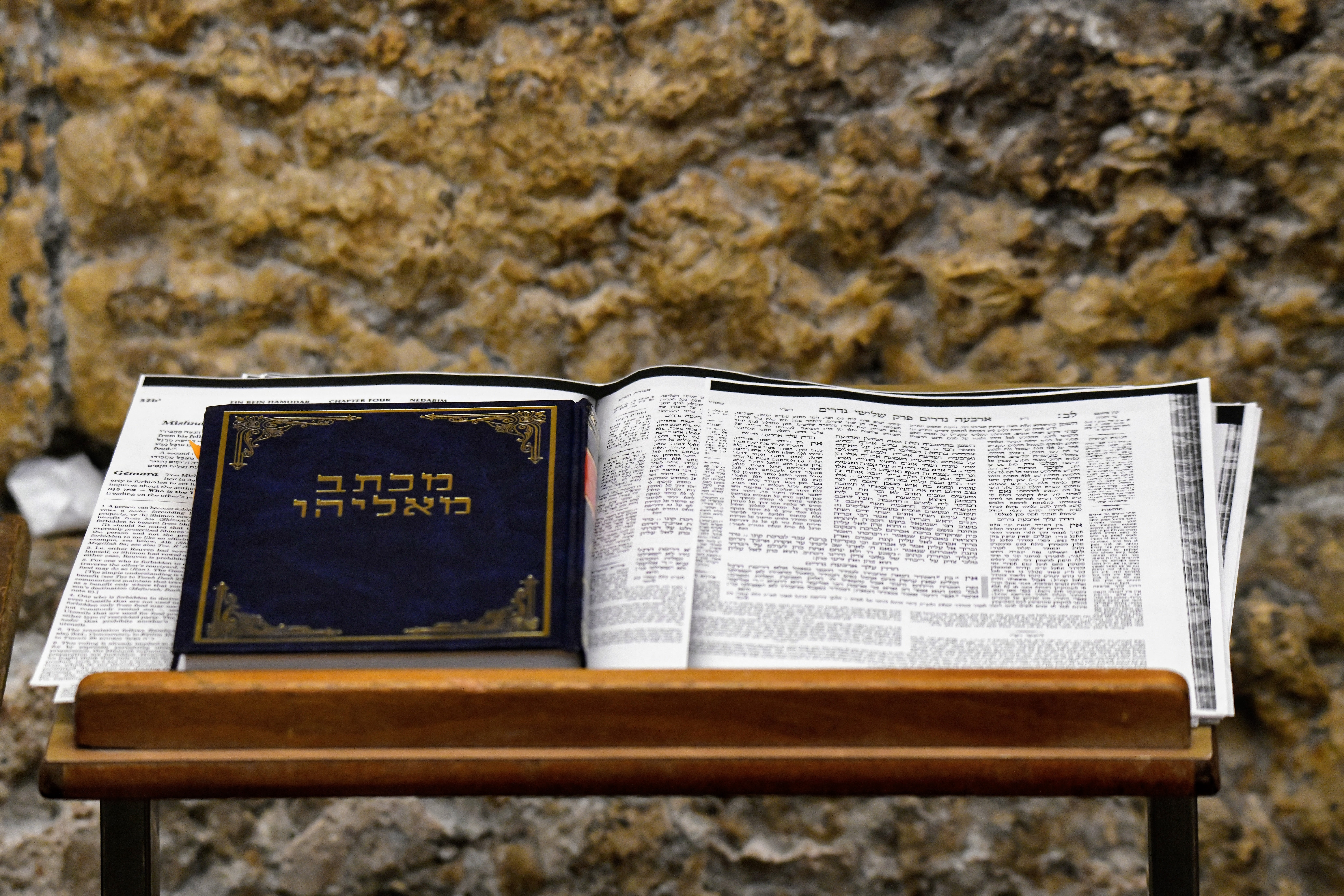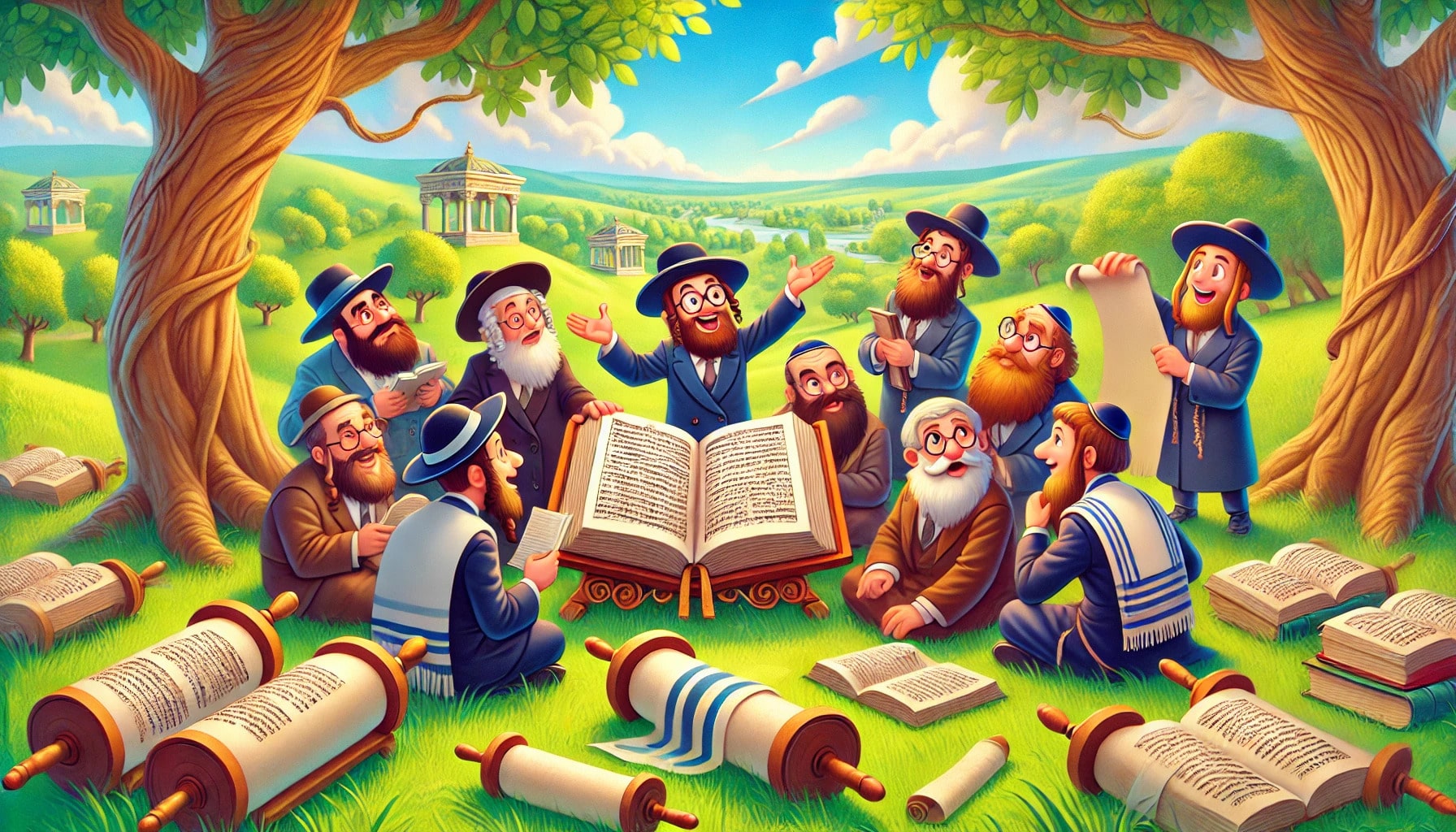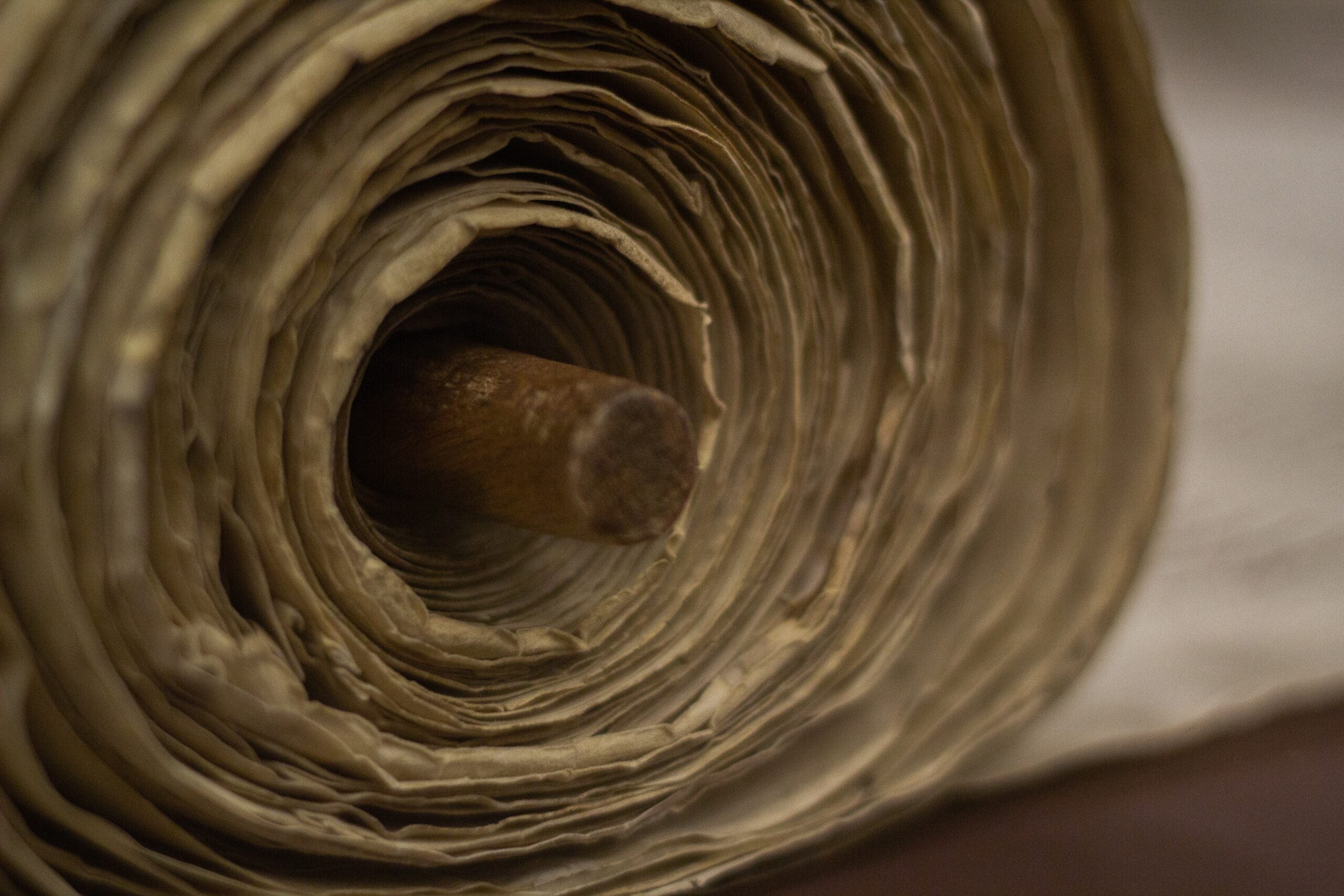| Getting your Trinity Audio player ready... |
Whether atheism, in the sense of the dogmatic denial of God’s existence, was accepted by anybody in Biblical and Rabbinic times is doubtful; but both in Bible and Talmud the concern was with the practical atheist who conducted his life as though he would never be held to account for his deeds. In Biblical literature the statement ‘There is no God’ is made by the Nabal, i.e. the morally corrupt person who, while acknowledging the existence of a Creator, refused to believe that He was at all interested in the actions of His creatures. His counterpart in the Talmud is the Apikoros, or Epicurean, who likewise ‘denies the fundamental principle of religion’ (B.B. 16b) by his abominable conduct. The Rabbis defined the atheist as one who affirmed ‘There is no judgment and no Judge’ (Gen. R. XXVI. 6) in the Universe, irrespective of his disbelief in the existence of God.
Religious polemic also underlies this piece of commentary: ‘The Holy One, blessed be He, said, “I am the first” (Is. xliv. 6) for I have no father; “and I am the last” for I have no brother; “and beside me there is no God “for I have no son’ (Exod. R. XXIX. 5).
THE basis of Jewish social life is the family, and the Talmud is ever watchful to conserve its purity and stability. Recognizing the all-important place which woman occupies in the life of the family, it accords to her a most dignified position. Especially when her lot among the other contemporary peoples is taken into account, the honour which is paid to woman by the Talmud offers a striking contrast. In no way is she looked upon as a being inferior to man. Her sphere of activity is different from man’s, but of no less significance to the welfare of the community.
Early marriage is advocated. For a male the age of eighteen is recommended (Aboth v. 24). ‘While your hand is still upon the neck of your sons—from sixteen to twenty-two, or according to another opinion, from eighteen to twenty-four—get them married’ (Kid. 30a). It is said that ‘up to the age of twenty the Holy One, blessed be He, watches for a man to marry, and curses him if he fails to do so by then’ (ibid. 29b). An imprudent marriage is deprecated, viz. when a man is not in a position to maintain a wife. From Deut. xx. 5–7 the Talmud derives the lesson: ‘The Torah teaches the correct procedure: a man should first build a house, then plant a vineyard, and after that marry’ (Sot. 44a).
There is a teaching, ‘The fire of Gehinnom will never be extinguished’ (Tosifta Ber VI. 7), but it conflicts with the doctrine of the School of Hillel that Gehinnom will cease. It is also stated that Gehinnom is half fire and half hail’ (Exod. R. LI. 7), while, according to another opinion, snow is likewise found there: ‘The Holy One, blessed be He, judges the wicked in Gehinnom for twelve months. At first he afflicts them with itching; after that with fire, at which they cry out “O! O!” and then with snow, at which they cry out “Woe! Woe!”’ (p. Sanh. 29b).
Related Study: Tractate Derekh Eretz Zuta chapter 1
Translation: The Minor Tractates of the Talmud, trans. A. Cohen, London: Soncino Press, 1965
Footnotes included
The characteristics of a scholar are that he is meek, humble, 1 Cf. Aboth IV, 4 (Sonc. ed., p. 45). alert, filled [with a desire for learning], 2 H reads memullaḥ, ‘bright’, as in Ḳid. 29b (Sonc. ed., p. 141). Cf. KR III, 2, p. 443, n. 13. modest, beloved by all, humble to the members of his household and sin-fearing. He judges a man [fairly] according to his deeds, 3 He does not, e.g., interpret a man’s good actions as determined by ulterior motives and does not show favour where it is not deserved. and says ‘I have no desire for all the things of this world because this world is not for me’. He sits and studies, 4 H omits ‘and studies’. soiling his cloak at the feet of the scholars. 5 For meṭannef H reads mith‘aṭṭef, ‘wrapped in his cloak’, perhaps in the same sense as in Aboth I, 4 (Sonc. ed., p. 3), ‘Suffer thyself to be covered by the dust of their feet’, i.e. sit in the dust on the ground at their feet while they teach. GRA reads maṭṭil, ‘and throws his cloak in front of the feet of scholars’, perhaps for them to sit on. For a different explanation, cf. KR III, p. 444, n. 17. In him no one sees any evil. He questions according to the subject-matter 6 Cf. Shab. 3b (Sonc. ed., pp. 5f.), ‘R. Ḥiyya said to Rab: “When Rabbi is occupied with one tractate, do not ask him a question relating to another” ’. and answers to the point. 7 lit. ‘in accordance with the accepted decision’.
Be like a gourd split open that the wind may enter, 8 Let your mind be open to receive instruction. For readings which add the negative, cf. ARN p. 85 and KR p. 449. like a deep furrow which retains its water, 9 Such a bed yields good produce; so must a scholar study continuously and raise good disciples. like a jar coated with pitch which preserves its wine, 10 i.e. he must have a retentive memory. and like a sponge which absorbs all. 11 Cf. Aboth V, 18 (Sonc. ed., V, 15, p. 69). Be not like a wide opening which allows the wind to rush in, 12 i.e. do not cultivate associates indiscriminately, yet do not be so unapproachable that worthy companionships cannot get near to you. Or, do not create a stir on entering and leaving; or, do not allow petty and frivolous ideas to enter your mind. or like a narrow opening which injures the valuable [as they press through]. 13 By having to stoop or squeeze in; i.e. do not cause people worthy or your association to demean themselves or hold aloof. Be like a doorstep on which everyone treads 14 i.e. be ready to learn from all. and like a low peg which is within the reach of all. 15 lit. ‘on which all hang [their things]’.
If you suffered monetary loss, remember Job who was smitten both financially and physically. If you have been smitten physically, remember Dathan and Abiram who descended alive into Sheol. 16 Cf. Num. 16, 32f.
Do not be enticed into sin by your eyes, because enticement into sin is caused only through the eyes. 17 Cf. Soṭah 8a (Sonc. ed., p. 35), ‘We have learnt a tradition that the evil impulse only bears sway over what a person’s eyes see’.
Do not cause yourself to feel ashamed by your teeth 18 GRA reads: ‘Do not be attracted to appetizing dishes’. lest you eat more than is good for you. 19 lit. ‘more than is sufficient’. NY quotes a reading: ‘That you do not give them too much to eat’. Another and better variant is: ‘That you eat not’, etc., i.e. shello’ instead of shemma’.
Do not turn away from meritorious deeds and do not be attracted to heresy. 20 Heb. minuth, a term for the teachings of the early Jewish-Christians. Do not inquire of Sadducees 21 A party holding views antagonistic to those of the Pharisees. They regarded only those observances obligatory which are in the written Torah and did not acknowledge what was derived by Rabbinical interpretation. lest you be drawn into Gehinnom. 22 By abandoning the Torah.
If others speak evil of you, answer them not; should it be a serious [calumny], regard it as slight. If, however, you spoke evil of others, though [the calumny] be slight, regard it as serious [and do not rest] until you go and pacify them. 23 On the evil of slander, cf. ‘Arak. 15b (Sonc. ed., pp. 86ff.).
Let not your [behaviour during] adolescence be of blemished repute, for this would be derogatory to the Torah; but let it be of unblemished repute, for this would tend to glorify the Torah. 24 The translation follows GRA.
Love and honour the Torah. 25 By carrying out your duties towards God. Love your fellow-creatures and respect them. 26 By observing your duties towards them.
Set aside your will in face of the will of your fellow, 27 When they conflict; cf. Aboth II, 4 (Sonc. ed., p. 14). for so did Rachel towards Leah and David towards Saul. 28 Cf. KR IV, p. 454f. Set aside your will and the will of your fellow in face of the will of Heaven, for so we find it with Jacob who did not kiss Joseph. 29 Cf. ibid.
Love the [term] ‘perhaps’ and hate the [expression] ‘how much?’ 30 i.e. ‘how much harm will it do to me?’ Or, be envious of others by saying, ‘Look how much So-and-so possesses!’ R. Ḥidḳa expressed this in another way: Love the [term] ‘perhaps’ and hate the [expression] ‘what of it?’ 31 If I commit this trivial sin; so GRA, lit. ‘What is in it?’ it is of little consequence.
Keep aloof from anything that may lead to sin, from anything hideous and from whatever seems hideous, 32 Cf. Ḥul. 44b (Sonc. ed., p. 239). lest others suspect you of sin.
Slander not your fellow because there is no remedy for him who slanders his fellow.
Do not eat bread with a kohen who is an ‘am ha-’areẓ lest he give you sacred food to eat. 33 Cf. Ned. 20a (Sonc. ed., p. 56).
Refrain from grumbling lest you grumble against others and be led into further sin. 34 Cf. below, IX, 1, p. 589.
There were seven patriarchs with whom a divine covenant was made, viz.: Abraham, Isaac, Jacob, Moses, Aaron, Phinehas and David. In connection with Abraham it is written, In that day the Lord made a covenant with Abraham saying. 35 Gen. 15, 18. In connection with Isaac it is written, But My covenant will I establish with Isaac. 36 ibid. XVII, 21. In connection with Jacob it is written, Then will I remember My covenant with Jacob. 37 Lev. 26, 42. In connection with Moses it is written, For after the tenor of these words I have made a covenant with thee and with Israel. 38 Ex. 34, 27. In connection with Aaron it is written, It is an everlasting covenant of salt before the Lord. 39 Num. 18, 19. In connection with Phinehas it is written, And it shall be unto him, and to his seed after him, the covenant of an everlasting priesthood. 40 ibid. XXV, 13. In connection with David it is written, I have made a covenant with My chosen, I have sworn unto David My servant. 41 Ps. 89, 4. Perhaps this passage is quoted here to teach men to emulate their special characteristics. Abraham stands as the example of hospitality, Isaac of self-sacrifice, Jacob of scholarship (cf. Gen. 25, 27, where according to Rabbinic interpretation tents means schools), Moses of meekness, Aaron of peace-making, Phinehas of zeal on behalf of God, and David of singing His praise.
The following seven patriarchs have gone to their eternal rest with great honour and worms and maggots had no dominion over them, viz.: Abraham, Isaac, Jacob, Moses, Aaron, Miriam and their father Amram. 42 In B.B. 17a (Sonc. ed., p. 86), ‘and Benjamin the son of Jacob’. Some say: Also David, as it is stated, Therefore my heart is glad, and my glory rejoiceth; my flesh also dwelleth in safety. 43 Ps. 16, 9, the last words being understood as ‘unaffected by worms’.
There were nine 44 For the list, cf. KR III, p. 461, and notes who entered the Garden of Eden alive, viz.: Enoch the son of Yered, Elijah, the Messiah, Eliezer the servant of Abraham, Hiram, king of Tyre, 45 It is more likely that the word king has crept in by mistake and the text should read ‘Hiram of Tyre’, who was of the tribe of Naphtali (1 Kings 7, 13f.). Ebed-melech the Cushite, Jabeẓ the son of R. Judah the Prince, Bithiah the daughter of Pharaoh, and Seraḥ the daughter of Asher. Some say: Also R. Joshua b. Levi.













